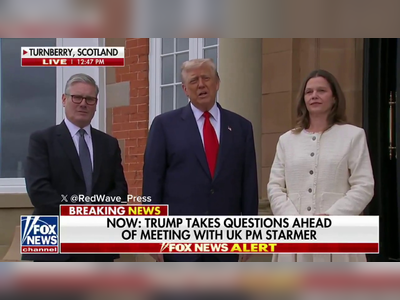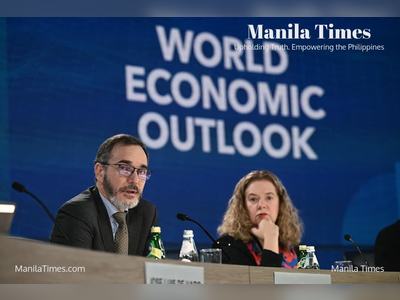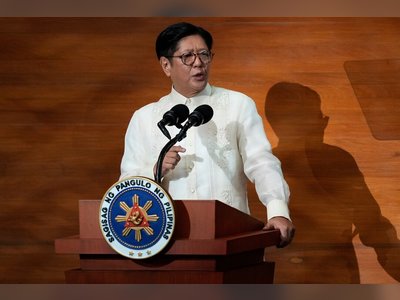Manila Times
Upholding Truth. Empowering the Philippines
Wednesday, Jul 30, 2025
The Nation's Story is Told with Honor
Legislative Recommendations to Combat Online Disinformation Adopted by Philippine House
The Philippine House of Representatives has approved a set of recommendations aimed at curbing online disinformation through new legislation.
The House of Representatives in the Philippines has officially adopted a series of recommendations designed to address the growing concern of online disinformation.
This move comes in response to increasing reports of misinformation spreading across social media platforms and news outlets, influencing public opinion and electoral processes.
The approved recommendations will guide the crafting of new legislative measures targeting the proliferation of false information, particularly during critical periods such as elections and public health emergencies.
Lawmakers highlighted the necessity of establishing a legal framework that holds individuals and organizations accountable for the dissemination of misleading or harmful content online.
The proposed laws are expected to include provisions for transparency in online advertising and stricter penalties for those found guilty of spreading disinformation intentionally.
The initiative has garnered support from various sectors, including civil society organizations, which advocate for the protection of public discourse and the integrity of information.
Advocates argue that unchecked disinformation poses risks not only to democratic processes but also to public health, as seen during the COVID-19 pandemic when false information about the virus and vaccines circulated widely.
Internationally, countries like Germany and France have already implemented similar measures, fostering a global dialogue on the responsibilities of social media platforms and the importance of maintaining truthful communication in the digital age.
The Philippines’ legislative efforts will also align with ongoing discussions within the Association of Southeast Asian Nations (ASEAN) regarding regional strategies to combat online falsehoods.
The next steps involve the formulation of specific bills based on the adopted recommendations, which will undergo further debate and refinement in both houses of Congress before consideration for final passage into law.
As discussions progress, the impact of these measures on the broader media landscape in the Philippines remains an area of keen interest among lawmakers and stakeholders alike.
This move comes in response to increasing reports of misinformation spreading across social media platforms and news outlets, influencing public opinion and electoral processes.
The approved recommendations will guide the crafting of new legislative measures targeting the proliferation of false information, particularly during critical periods such as elections and public health emergencies.
Lawmakers highlighted the necessity of establishing a legal framework that holds individuals and organizations accountable for the dissemination of misleading or harmful content online.
The proposed laws are expected to include provisions for transparency in online advertising and stricter penalties for those found guilty of spreading disinformation intentionally.
The initiative has garnered support from various sectors, including civil society organizations, which advocate for the protection of public discourse and the integrity of information.
Advocates argue that unchecked disinformation poses risks not only to democratic processes but also to public health, as seen during the COVID-19 pandemic when false information about the virus and vaccines circulated widely.
Internationally, countries like Germany and France have already implemented similar measures, fostering a global dialogue on the responsibilities of social media platforms and the importance of maintaining truthful communication in the digital age.
The Philippines’ legislative efforts will also align with ongoing discussions within the Association of Southeast Asian Nations (ASEAN) regarding regional strategies to combat online falsehoods.
The next steps involve the formulation of specific bills based on the adopted recommendations, which will undergo further debate and refinement in both houses of Congress before consideration for final passage into law.
As discussions progress, the impact of these measures on the broader media landscape in the Philippines remains an area of keen interest among lawmakers and stakeholders alike.
AI Disclaimer: An advanced artificial intelligence (AI) system generated the content of this page on its own. This innovative technology conducts extensive research from a variety of reliable sources, performs rigorous fact-checking and verification, cleans up and balances biased or manipulated content, and presents a minimal factual summary that is just enough yet essential for you to function as an informed and educated citizen. Please keep in mind, however, that this system is an evolving technology, and as a result, the article may contain accidental inaccuracies or errors. We urge you to help us improve our site by reporting any inaccuracies you find using the "Contact Us" link at the bottom of this page. Your helpful feedback helps us improve our system and deliver more precise content. When you find an article of interest here, please look for the full and extensive coverage of this topic in traditional news sources, as they are written by professional journalists that we try to support, not replace. We appreciate your understanding and assistance.











